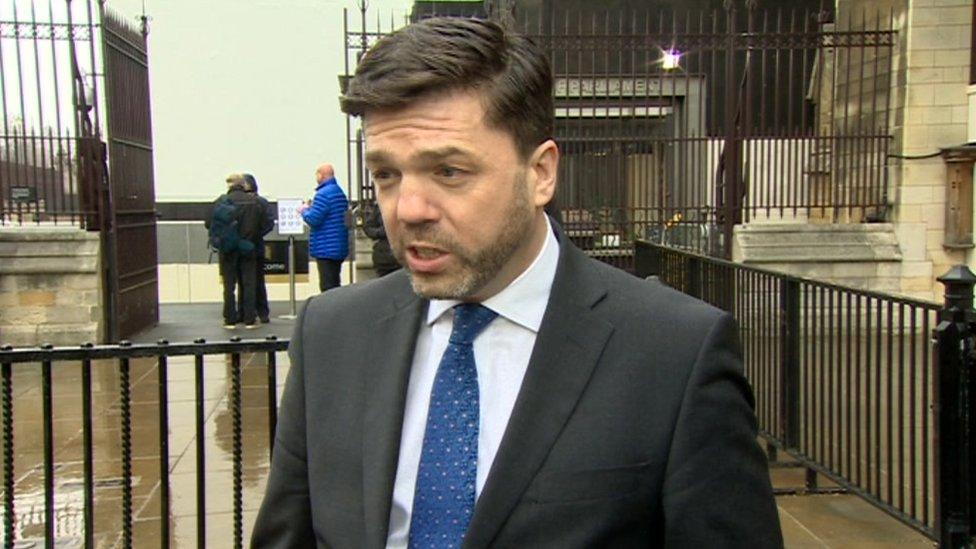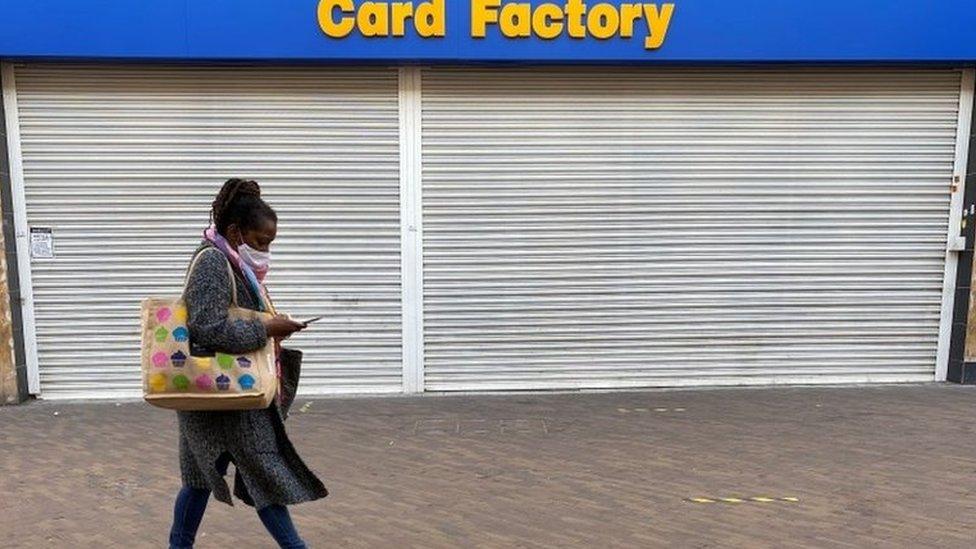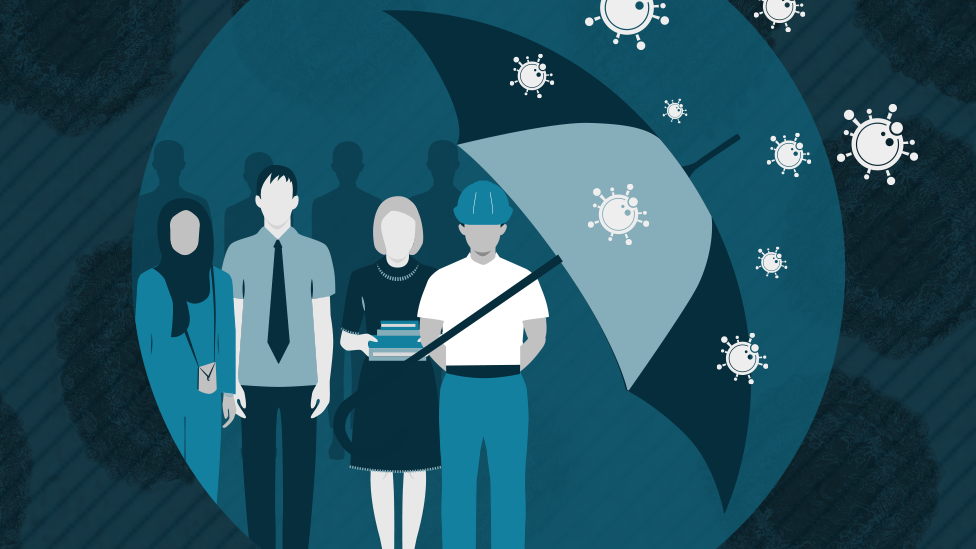Tory MP Stephen Crabb calls for universal credit increase for families
- Published

Stephen Crabb said many families face a "big drop" in income
A Conservative MP has called on the UK government to increase benefits for families for a year.
Stephen Crabb said increasing the child element of universal credit would help families at risk of poverty from the coronavirus crisis.
The former Work and Pensions Secretary said many families faced losing their jobs and a "big drop" in income.
The UK government said it was committed to supporting the lowest-paid families and had taken "significant steps".
Furlough - where businesses receive cash from the government to cover most of the wages of people on leave - is due to end in October.
From August, employers will have to pay National Insurance and pension contributions, and from September they will pay a proportion of their workers' salaries.
Wales has 316,000 workers on furlough.
The Preseli Pembrokeshire MP told BBC Wales: "The government's done a huge amount to protect families during the last three months of this crisis - the furlough scheme has been an incredible support, a real lifeline for around 9 million workers around the UK.
"Of course that's coming to an end and the government can't carry on paying those wages indefinitely.
"My concern is we are going to see a lot of redundancies, a lot of people losing their jobs and moving from furlough, getting 80% of their salary, to relying on benefits. That's going to be a big drop for a lot of families."
A quarter of people on furlough are expected to lose their jobs, he said, adding he would would like to see the government make "a twelve-month commitment to this temporary increase to the child element of universal credit."

There are fears families face a huge drop in income after the coronavirus crisis
Mr Crabb said the change would "help support families, particularly those families who are moving from furlough where they've been getting 80% of their salary, to relying purely on benefits".
He said he believed it should be a temporary increase because "the real solution to this is of course to get the economy working again and to get people back into jobs."
However, he raised a "question mark" over how well universal credit supports families going forward.
"The universal credit system has worked well for many families and individuals, but it hasn't worked so well for others," he added.
The Department for Work and Pensions said: "The UK government is committed to supporting the lowest-paid families and has already taken significant steps including ending the benefit freeze and increasing work incentives.
"We understand the current challenges many are facing which is why we injected £6.5bn into the welfare system, including increasing universal credit and working tax credit by up to £1,040 a year, as well as rolling out income protection schemes, mortgage holidays and additional support for renters."
- Published11 June 2020

- Published30 September 2021
